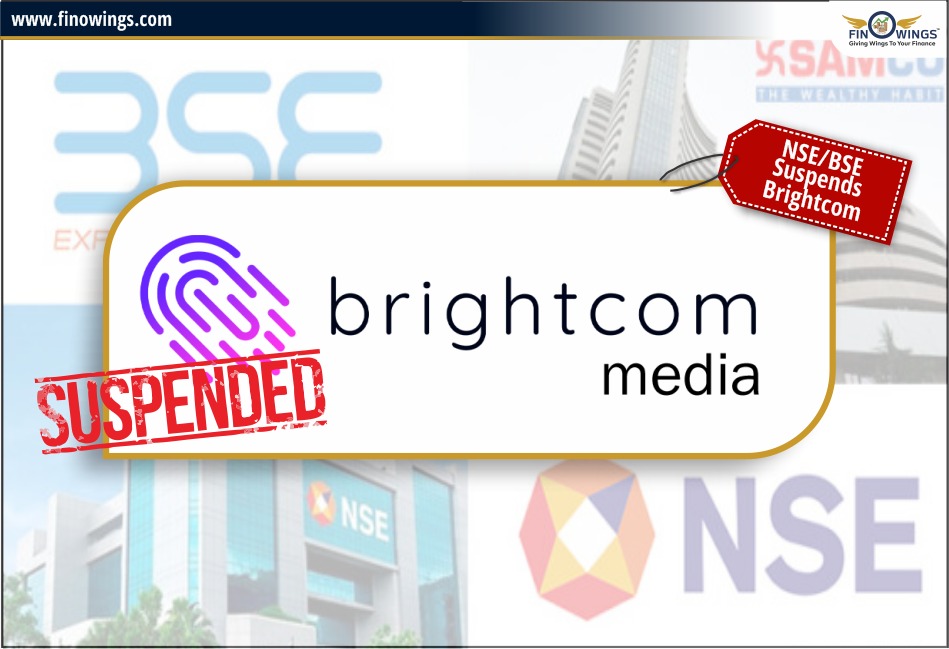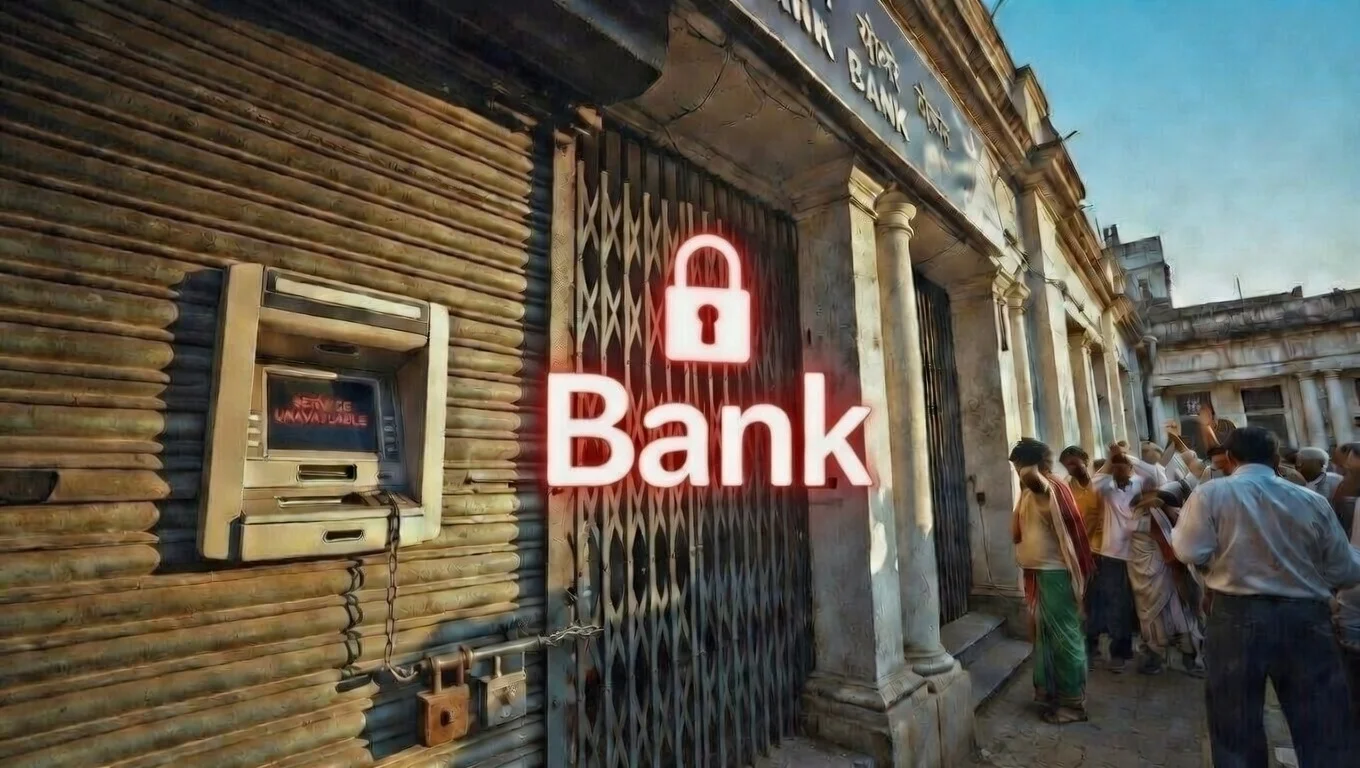Home >> Blog >> Why NSE/BSE Suspends Brightcom Group Trading?
Why NSE/BSE Suspends Brightcom Group Trading?

Table of Contents
The Suspension of BCG Share Trading
The recent news regarding the suspension of trading activities for the BCG (Brightcom Group) share has sent shockwaves through the stock market. This action by the National Stock Exchange (NSE) comes as a result of the company's failure to comply with Regulation 33 of the SEBI (Securities and Exchange Board of India) Regulation Act 2015 for two consecutive quarters. As a consequence, the shares of BCG will be suspended from trading on the NSE starting June 14th.
The suspension of trading is just the beginning of the troubles for BCG shareholders. After the initial 15-day suspension period, the stock will be relegated to the 'Z' category, where it will be traded on a 'trade-to-trade' basis, only on the first trading day of each week for the next six months. This move is likely to trap many retail investors who have been holding on to the stock, as the lower circuit limit of 5% has already been triggered following the news.
The Pump-and-Dump Scheme
The BCG share has been the subject of a classic pump-and-dump scheme, where the stock price was artificially inflated through various means, only to be subsequently dumped, leaving unsuspecting investors with significant losses. In May 2024, the stock witnessed a massive dump, plummeting from a high of ₹127 to a mere ₹12, drowning many retail investors in the process.
The involvement of certain high-profile investors, who were actively promoting the stock, has further compounded the issue. These investors, reportedly based in Dubai, have been accused of manipulating the stock through the misuse of preferential shares and warrants, as revealed by a SEBI investigation in September 2021.
The Manipulated Financial Statements
One of the most concerning aspects of the BCG saga is the apparent manipulation of the company's financial statements. Despite the recent losses and the SEBI ban, the company's profit and loss statements have shown a remarkable increase in profits over the last three to four years. This has led many to question the integrity of the company's financial reporting and the validity of the numbers presented.
The company's operating profit margins (OPM) have also been consistently high, further fueling suspicions of financial engineering. These manipulated financial statements have been used to lure unsuspecting investors into the stock, only to have them suffer significant losses in the end.
The Impact and the Need for Regulatory Action
The suspension of BCG's trading activities is just the tip of the iceberg. The real concern lies in the potential delisting of the stock and the impact it will have on the thousands of retail investors who have been trapped in this debacle. As the stock price continues to plummet, these investors face the prospect of losing their hard-earned money, with no recourse in sight.
The responsibility for this situation lies not only with the company's management but also with the market regulators and authorities. SEBI and the NSE must take stringent action to hold the perpetrators of this pump-and-dump scheme accountable, ensuring that the losses incurred by retail investors are compensated, and that similar incidents are prevented in the future.
The regulatory bodies must also consider implementing stronger measures to protect retail investors, such as enhanced disclosure requirements, stricter monitoring of suspicious trading activities, and the imposition of severe penalties on those found guilty of market manipulation. Only through such proactive measures can the integrity of the stock market be restored and the trust of the investing public be regained.
Lessons Learned and the Way Forward
The BCG share saga serves as a stark reminder of the risks associated with investing in penny stocks and the importance of conducting thorough due diligence before committing funds. Retail investors must be cautious of any stock that exhibits sudden and unexplained price movements, as these may be indicative of a pump-and-dump scheme.
Furthermore, investors should always prioritize the fundamentals of a company, such as its financial stability, management, and long-term growth prospects, over short-term price fluctuations. It is crucial to understand that high returns often come with high risks, and that a diversified portfolio is essential to mitigate the impact of such events.
In conclusion, the BCG share saga is a cautionary tale that highlights the need for stronger regulatory oversight, enhanced investor education, and a more transparent and accountable stock market ecosystem. Only by addressing these issues can we ensure that the stock market remains a fair and reliable platform for all investors, both retail and institutional.
Disclaimer: This Stock Analysis is only for informational purposes and should not be considered as investment advice. Always do your research and consult with a financial advisor.
Want to start Your Journey in stock market trading and investment? Join our Stock Market Class to become beginner to expert trader! We cover everything from the basics of trading to advanced strategies for picking stocks. Plus, we're offering a special discount for women and students. Don't miss out - enroll now and kickstart your path to success in the stock market!
Open a world of Stock Market by Opening a Demat Account with your favourite Broking firm & Get a trading Strategy worth Rs.15,000!
Author
Frequently Asked Questions
The National Stock Exchange (NSE) suspended trading of BCG shares due to the company's non-compliance with SEBI regulations for two quarters in a row.
After a 15-day suspension, the stock will be moved to the 'Z' category with limited trading options for the next six months. This could make it difficult for investors to sell their shares.
Sudden and unexplained surge in stock price followed by a steep drop (May 2024 dump).
Involvement of high-profile individuals promoting the stock.
Suspiciously high and consistent profit margins in financial statements despite losses.
Difficulty selling shares due to limited trading options.
Significant financial losses for retail investors who bought the stock.
Stronger regulatory oversight to punish manipulators and protect investors.
Enhanced investor education to raise awareness of pump-and-dump schemes.
Stricter monitoring of suspicious trading activities.
Increased transparency and accountability in the stock market.


















